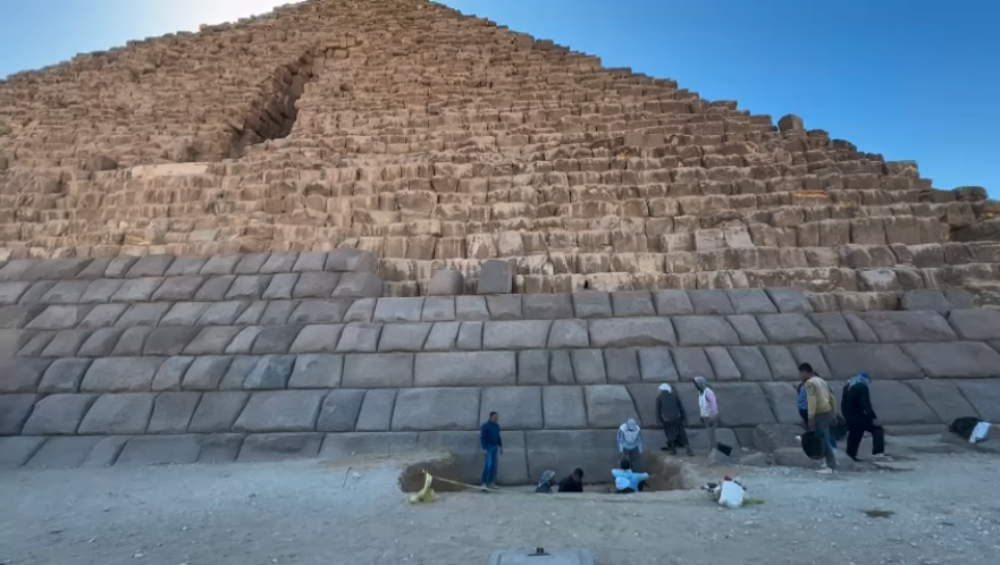Egypt Announces Controversial New Plans To Renovate Ancient Pyramids

Courtesy of Middle East Eye
EB
By Elliot Biern
From Issue 2, 2023-2024; global
Updated Mar 4, 2024
Earlier this month, the Egyptian Ministry of Tourism and Antiquities announced their plans to begin renovations on one of the great pyramids of Giza. This project, undertaken by a joint Egyptian-Japanese archeological team, would involve the placement of large granite blocks along the exterior of the ancient structure. This work is only expected to be done on the Pyramid of Menkaure, the smallest of the pyramids in the Giza complex. Built over 4500 years ago, the monument is thought to have been built to house the tomb of the Pharoah Menkaure, who ruled Egypt during the fourth dynasty of the old kingdom.
While most Egyptian pyramids were originally covered with a layer of finely polished granite blocks, this facade has gradually been stripped away over the years due to weathering, and the repurposing of the stones for use in other projects. It is generally against archeological norms to restore an ancient site, especially one of such cultural significance. This has led to considerable outrage among the archeological community and the public alike.
While the Egyptian government has dubbed this proposal as “the project of the century”, many consider them to be desecrating the beloved historical structure. Experts have voiced concerns about the structural, and the historical integrity of this construction, and the public has lamented the potential loss of a beloved site in Egyptian history.
Despite the outcry, the Ministry of Tourism and Antiquities has defended its decision to alter the landmark. They hope to restore the pyramid to its former glory, in turn boosting tourism to the region. Many pictures and videos of their work have been posted online, and the ministry maintains that the project will be completed within the next three years.
